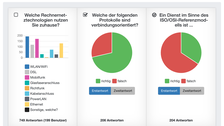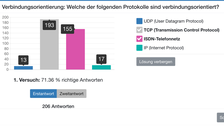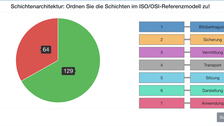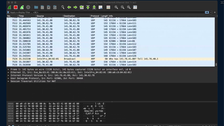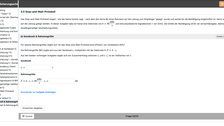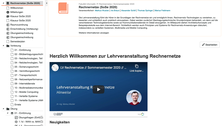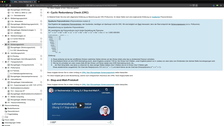Computer Networks: Prof. Dr. Alexander Schill, Dr. Markus Wutzler, Dr. Iris Braun (#MW1)
Format
Lecture (asynchronous video streams in conjunction with AMCS for testing knowledge) and practical (comprehensive e-learning with interactive tasks and explanatory videos in OPAL; additional online, synchronous events hosted as video conferences for following up on the tasks / consultation / correction of common mistakes)
Keywords
- Compulsory course on computer networks (computer science)
- Learning objective: to understand fundamental computer network technologies
- Asynchronous & synchronous virtual format based on the principle of a flipped classroom
- Mix of conventional slides and tasks, video streams and live conferences, interactive tasks and self-assessment, communication
- Carried out via OPAL / ONYX (teaching material and interactive tasks), video streaming / YouTube / BigBlueButton, AMCS
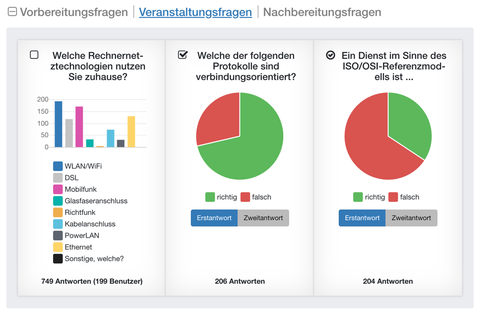
© Markus Wutzler
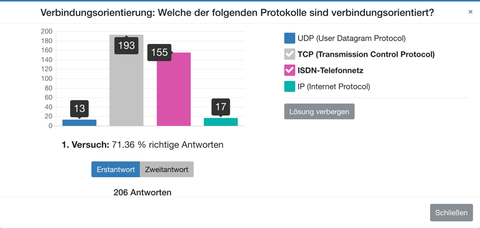
© Markus Wutzler
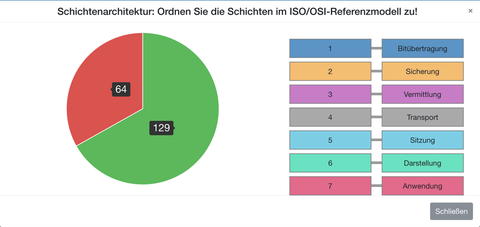
© Markus Wutzler
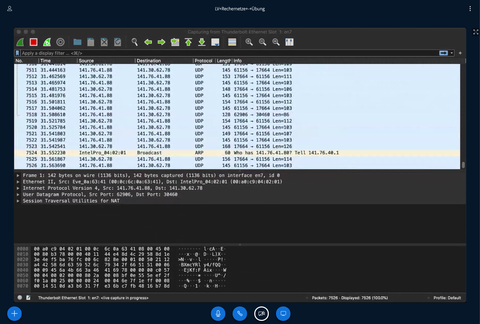
© Markus Wutzler
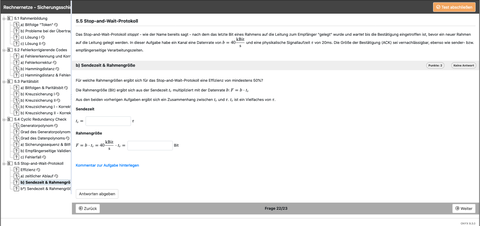
© Markus Wutzler
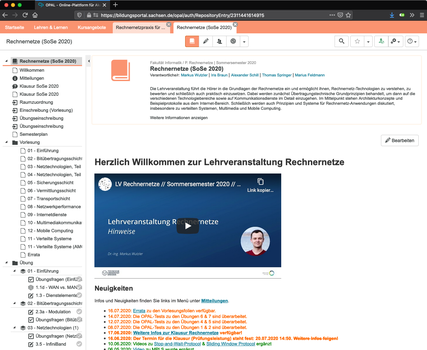
© Markus Wutzler
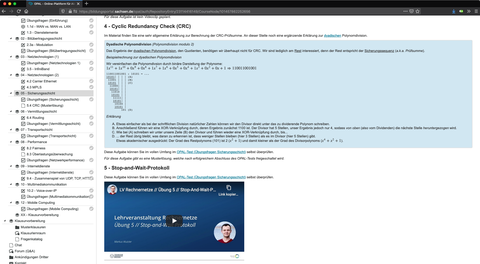
© Markus Wutzler
Description
The Faculty of Computer Science’s compulsory Computer Networks course provides an introduction to data communication and familiarizes students with the basic principles, technologies and computer network protocols.
To this end, we produced and coordinated a comprehensive mix of e-learning materials for the 2020 summer semester. All lectures were recorded in sections with presentation slides and displayed cursor movements. We uploaded these as 3 to 5 asynchronous video sequences together with the presentation slides. After the video sequences, students could complete short tasks and test their knowledge via the Auditorium Mobile Classroom Service (AMCS). We made the lectures available on a weekly basis to introduce structure during this unusual semester.
The practical followed the flipped classroom model, where students could complete tasks and check their answers ahead of time on their own. Interactive OPAL tests (ONYX) with integrated feedback were set up for all units of the practical to guarantee active support during independent study. The students received immediate and automated feedback, tailored to their responses, enabling them to correct their answers step-by-step. They could upload a selection of more comprehensive tasks, which were subsequently corrected manually by the instructor of the practical. To motivate students to study independently, additional sample solutions were made available automatically upon completion of the exercises. We also created asynchronous explanatory videos to accompany many of the practical exercises. This allowed us to give students the input that normally would arise during an on-site class. Each practical unit had its own set of guidelines for completion. We held weekly consultations for the practical groups via video conferencing (BigBlueButton) to discuss the completed exercises. Additionally, the OPAL test results were combed for recurring mistakes so that they could be discussed and corrected. Practical instructors and students also had the opportunity to present the submitted solutions for discussion, if necessary.
A structured, OPAL-integrated course as well as video sequences in the form of an instruction manual explained the didactic combination of the various e-learning components for students. Comprehensive, transparent communication with the students via email, OPAL and Matrix messenger facilitated active support in the learning process,and allowed students to receive individual assistance with specific problems and questions.
Despite initial reluctance, students gave very positive feedback in their evaluations of the course. We, too, were unsure of how to best meet students’ needs online, but their responses demonstrated that the tailored combination of various e-learning methods in particular did just that. The results of the final exam were comparable with those of previous years or, in light of the present situation, perhaps even better. This combined with the positive feedback affirmed that our efforts to create a new, effective learning environment had succeeded.
OPAL: https://bildungsportal.sachsen.de/opal/auth/RepositoryEntry/23114416149
AMCS: https://amcs.website -> PIN: RN2020
Contact
Prof. Dr. Alexander Schill
Dr.-Ing. Markus Wutzler
Dr.-Ing. Iris Braun
Voting ID
#MW1

